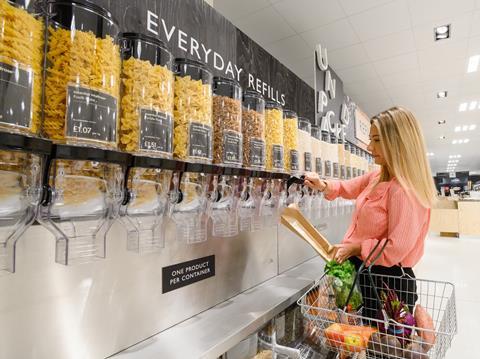- Packaging is an essential part of our daily lives, and it plays a crucial role in protecting products and ensuring their safety during transport and storage. However, the way we produce and dispose of packaging can have a significant impact on the environment.
- The production of packaging materials, such as plastics, paper, and metals, requires energy and natural resources, such as water and fossil fuels. The process of producing these materials can lead to air and water pollution, greenhouse gas emissions, and deforestation.
- Once the packaging is used, it often ends up in landfills, where it can take hundreds of years to decompose. This can lead to the release of harmful chemicals and gases, such as methane, into the environment. Additionally, some packaging materials, such as plastic, can end up in our oceans and harm marine life.
- To reduce the environmental impact of packaging, there are several steps that can be taken. One is to reduce the amount of packaging used by finding alternative ways to protect products, such as using biodegradable or compostable materials. Another is to promote recycling and ensure that packaging materials are collected and processed properly.
- In recent years, there has been a growing trend towards sustainable packaging, which aims to reduce the environmental impact of packaging by using materials that are renewable, recyclable, or compostable. Many companies are also implementing circular economy principles, which focus on reducing waste and maximizing the use of resources.
- the packaging industry is making efforts to become more sustainable and environmentally friendly. Companies are using innovative materials and design solutions to reduce waste and improve the recyclability of packaging. As consumers become more aware of the environmental impact of packaging, it is likely that these trends will continue to grow in importance.
The industry can not afford not to try hard
- “Mondi develops new paper-based bag solution for food industry” – Mondi, a global leader in packaging and paper, has developed a new paper-based bag solution that offers high-quality printing and is suitable for food packaging.
- “Nestle launches new reusable containers for Häagen-Dazs ice cream” – Nestle has launched new reusable containers for its popular ice cream brand, Häagen-Dazs. The containers are made from stainless steel and are designed to be refilled at participating Häagen-Dazs shops.
- “Avery Dennison launches new bio-based label material” – Avery Dennison, a leading provider of labeling and packaging materials, has launched a new bio-based label material made from sugarcane waste. The material is designed to reduce the environmental impact of packaging.
- “Coca-Cola to switch to 100% recycled plastic bottles in Europe” – Coca-Cola has announced plans to switch to 100% recycled plastic bottles for its brands in Europe by 2023. The move is part of the company’s efforts to reduce its plastic waste and increase the use of recycled materials.
- “Unilever to eliminate non-recyclable plastic packaging by 2025” – Unilever, a global consumer goods company, has announced plans to eliminate non-recyclable plastic packaging for all its products by 2025. The company has set a target to use 100% reusable, recyclable or compostable plastic packaging by that time.



